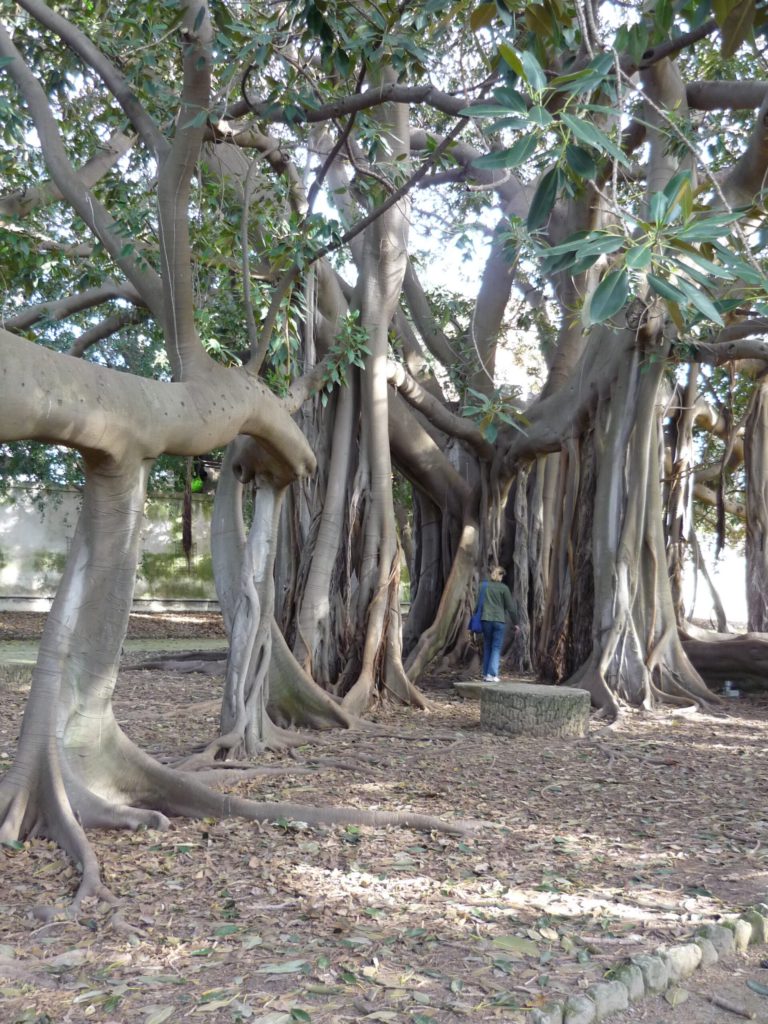
Planting a tree in Palermo a few hundred years ago means a gigantic tree is still living today. A botanical garden is a living library and so is a zoo, an art museum, or a national park.
These storehouses of genetic variability are important because today’s shortcoming may be the key to success in another era. A library works the same way: the ideas and stories in books are passed on to the next generation and they make new stories of their own.
A book is a kind of seed that grows into someone’s life and becomes what they make and do in their lives. Each library leads to the next and reading in one library might mean writing a book for another. In the same way, planting one garden makes seeds for the next.
I’m an epidemiologist by training. Malcolm Gladwell’s The Tipping Point applies epidemiology to the transmission of ideas. A epidemiologic causal chain describes the path of an outbreak: a reservoir to a portal of exit to a mode of transmission to a portal of entry to a susceptible host.
You break the chain in as many places as possible to prevent disease. Or connect as many links as possible to spread ideas.
Libraries, gardens, art museums, and forests are all idea reservoirs. When we explore the world around us in these places, we are susceptible hosts.
What matters to me is the way both libraries and gardens illustrate God’s generosity and the abundance in our lives. Scarcity has no place in a garden or in a library. Tragedies may destroy them–drought, fire, water damage, flooding, war–but gardens and libraries are a kind of sharing that can always be started again. Once they begin, they multiply.
In an unfamiliar place, I orient myself by sticking to the main path. I gradually extend my boundaries so I see new things, but still know where I am.
I make forays. My husband tends to surround a new place by going all around the edge.
I explore books in a causal chain, finding the ones connected to the ones I’ve already enjoyed. I’m not sure it matters how we explore. Only that we do.
Why do reservoirs matter so much? We need them to grow. To become someone better than the old you? Maybe. I’ve always valued the ability to surprise people with unexpected skills because they didn’t see how long it took you to learn them. Rising out of obscurity can be so entertaining.
But for me, Patrick O’Brian’s famous line from his Aubrey–Maturin series: “There’s not a moment to be lost” expresses the value of our lives. (In the mood for more philosophy? (Read 7 reasons why Patrick O’Brian was right in my mini-manifesto.)
Our explorations of the huge, amazing, varied world bring us more than self-improvement. Our discoveries, the seeds we plant, the books we read and write, as well as the people we love, make a difference for the future.
What will you explore today?
